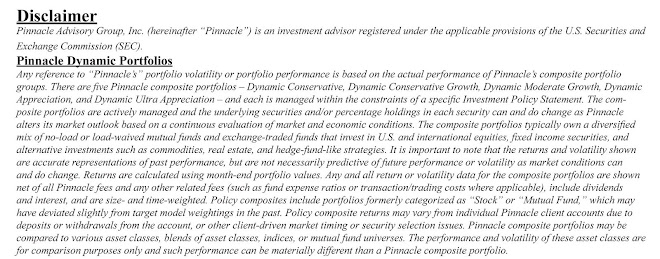Me: Market timing is nothing to be ashamed of. Every active manager who does something other than buy and hold securities is inevitably involved in some sort of market timing.
Them: Nonsense. Market timers try to predict the future and I would never do that.
Me: Really? What motivates you to change the securities in your portfolio?
Them: I study 75 different indicators to see what they tell us about past market behavior. Then I look for anomalies in the current data that might indicate a high probability of a certain market event. Then I use great discipline in executing changes based on high or low probability events without predicting the future at all….I just rely on my indicators to tell me what to do…and I do it.
Me: So what if your indicators tell you to sell stocks and you go ahead and sell them. Doesn’t that imply a forecast by you that stocks have a high probability of falling in value in the near future?
Them: No, I’m not making a prediction. This is just a high probability based on my scientific and systematic application of my trading system.
Me: But if you are selling and you don’t know the future, then the application of your trading system, which results in a buy or a sell, is the result of a forecast about future market direction.
Them: It most certainly is not.
Me: It is.
Them: It isn’t!
Me: The timing of your transaction, which is based on your systematic approach to developing your forecast, results in you timing the market. You can be early, late, or get it exactly right, but you can’t know the future with certainty so you are a market timer.
Them: No I’m not. Don’t call me a market timer. Instead, call me a (fill in the blank).
Me: Oh brother…look…you can be a (fill in the blank), but why won’t you admit that buying and selling securities constitutes an implied forecast of market direction and executing the transaction involves market timing? What is the big deal?Them: The big deal is...and I’ll say this for the last time…I don’t make market forecasts and I’m not a market timer. I’m a (fill in the blank). End of story!
Me: But the result of applying your strategy can be an extreme asset allocation that represents an “all in” bet in either risk or non-risk assets. If you get the timing wrong that represents a risk to portfolio returns.
Them: So what…I’m systematically applying a strategy to manage risk and it has nothing to do with market timing.
Me: But if you are “all-in” or “all-out” that’s market timing, isn’t it?
Them: No
Me: (sigh)

